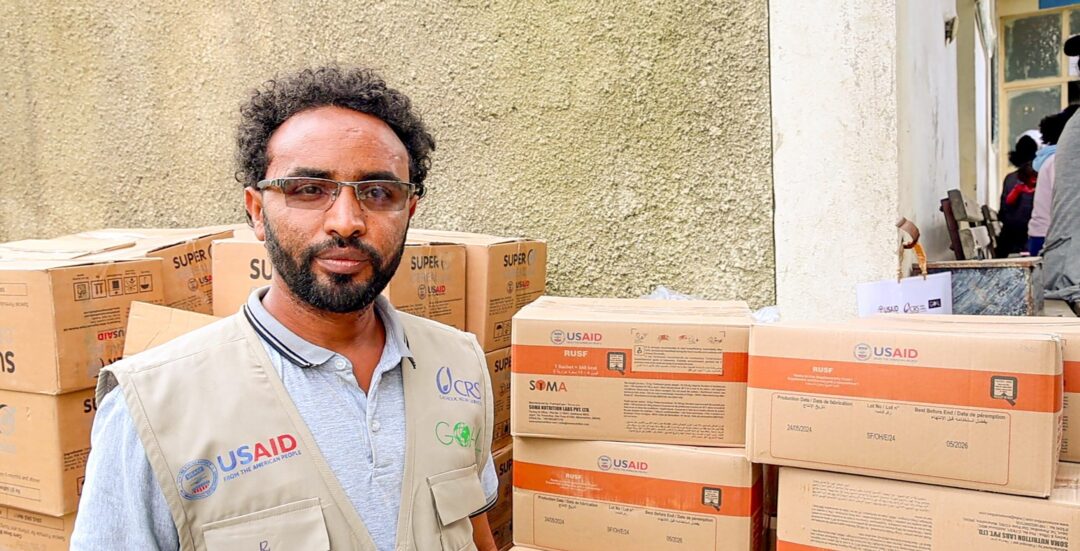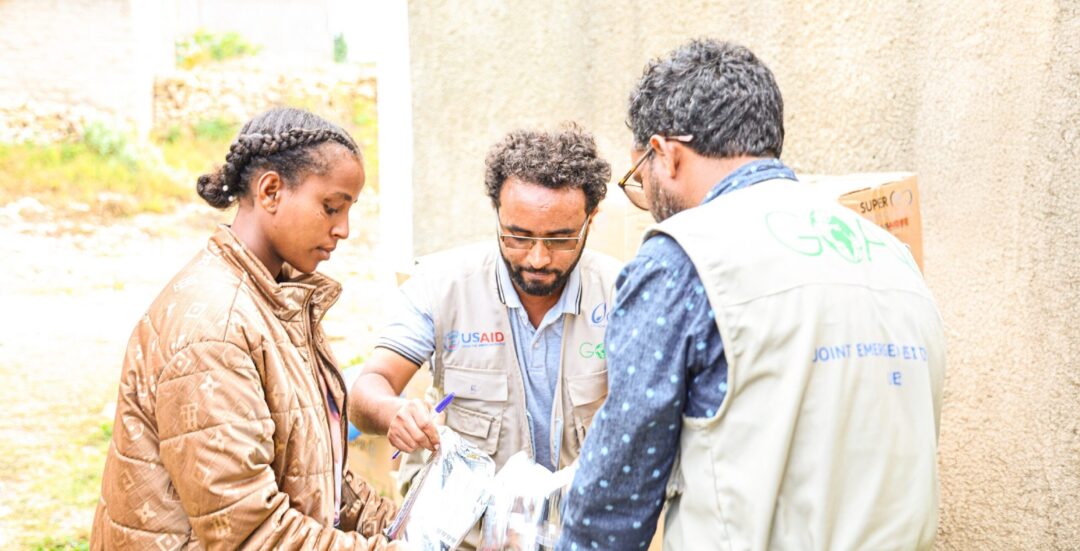 Stories
Stories
March 28, 2025 • 2 min read
As part of the Joint Emergency Operation Programme (JEOP) GOAL delivers vital food assistance and humanitarian aid to communities impacted by civil conflict in Tigray, northern Ethiopia. Heluft Reday is one of the mothers receiving essential nutrition support and education to support her child's long-term development through the initiative.
Food Insecurity and Malnutrition in Tigray
In the northern Ethiopia Tigray region, the last armed conflict, which ended with a peace agreement, has thrown the region into crises, causing mass displacement, severe food shortages, and humanitarian crises. As the area has grown increasingly unstable, malnutrition rates have soared to emergency levels, leaving thousands in a vulnerable condition while the regional health system struggles to keep pace. Now more than ever, delivering essential health services in Tigray is crucial, as food scarcity drives a surge in acute malnutrition amongst mothers and children.
Combatting Malnutrition with JEOP
With generous funding from the United States Agency for International Development (USAID), facilitated through the Bureau for Humanitarian Assistance (BHA), GOAL supports the implementation of JEOP by providing support to stabilisation centres and distributing therapeutic and supplementary foods to children under five and pregnant and lactating women who are affected by malnutrition. The programme adopts an integrated approach, ensuring that mothers and children receive immediate nutritional support and long-term, sustainable solutions to malnutrition through nutritional and health education services.

Heluft Reday
Heluft Reday is a mother who actively participates in the JEOP initiative and benefits from GOAL’s support. Through the program, she receives essential food supplements to bolster her own health and promote her child’s development.
Like all participants, Heluft underwent a thorough body examination to assess her and her child’s needs accurately. This ensures they receive the most appropriate nutritional support. While the aid is distributed, health and nutrition experts educate all participants on the causes of Malnutrition and Severe Acute Malnutrition. They also provide guidance on preparing the distributed food, supplementing it with readily available backyard produce like vegetables, and identifying symptoms of malnutrition. Mothers are encouraged to bring their children to health centres immediately if these symptoms are observed.
This integrated approach empowers mothers like Heluft with the knowledge and resources to combat malnutrition and foster their children’s long-term development. The program provides a comprehensive solution, from readily available food supplies to nutritional guidance and health education.
Acknowledging the programme’s support, Heluft said, “GOAL provides us with food distribution regularly. The support helps mothers and children recover from their condition, and we are grateful for it.”

